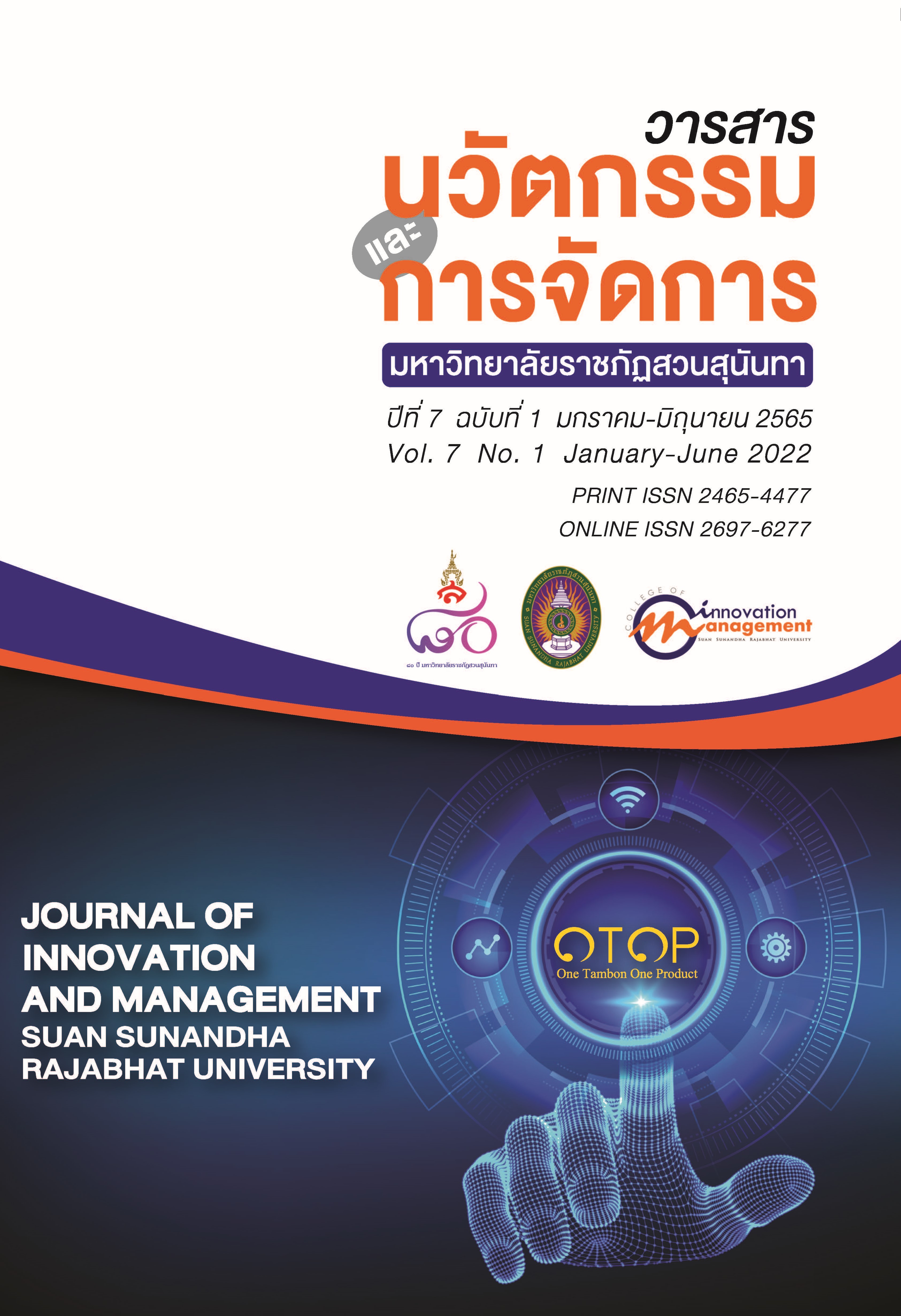The Management of Schools in the Eastern Economic Corridor
Keywords:
Administration, School Management, The Eastern Economic CorridorAbstract
The purposes of this research were to identify the factors of the management of schools in the Eastern Economic Corridor and the confirmation results of the management of schools in the Eastern Economic Corridor on issues of accurate, appropriate, feasible and applicable. The sample group used in the research was school administrators, assistant director or head of academic affairs and teachers of the Office of the Basic Education Commission in the Eastern Economic Corridor totally of 270 respondents. The instruments for collecting the data were semi-structured interview, opinionnaire and confirmative form. The results of the research showed that the factors of the management of schools in the Eastern Economic Corridor were including 7 factors: (1) Strategic Management (2) Develop teachers to use information technology (3) Promote the creation of teaching and learning innovations (4) Network-assisted education administration (5) Promote positive workplace culture (6) Create a curriculum linking to integrate education management and (7) Organize the personnel management system. The five experts confirmed the result of 7 elements that it was accurate, appropriate, feasible, applicable and consistent with theory and research conceptual framework.
References
Best, J. W. (2006). Research in Education. 10th ed. Massachusetts: Pearson Education Inc.
Hysa, F. (2014). School Management and Leadership in Education. Journal of Educational and Social Research, 4(3), 303-306.
Murugesan, G. (2012). Principles of Management. New Delhi: University Science press.
Ministry of Education. (2017). Educational Development Plan in the Eastern Economic Corridor (2017 - 2021). Bangkok: Office of the Permanent Secretary, Ministry of Education. (in Thai)
Nakawet, N. (2015). Development of a Model for Lab School Administration. EAU Heritage Journal, 1(2), 77- 86. (in Thai)
Office of the Basic Education Commission. (2019). Basic Educational Management for Employment Follows the 21-Century Approach to Learning Skills. [Online]. Retrieved 30 September 2019, from: http://www.nitessatun.net/wpcontent/uploads/2016/05/meework001.pdf. (in Thai)
Peters, T. J. and Waterman, R. H. Jr. (2015). In Search of Excellence: Lessons from America's Best-Run Companies. 8th ed. America: Harper Business.
Phiphatnarathorn, N. (2018). Management towards excellence in private schools in Bangkok. Journal of Graduate MCU KhonKaen Campus, 5(1), 223-240. (in Thai)
Regional Education Office NO.8. (2019). The Implement of Policy to Develop the Basic of Educational Management in Eastern Economic Corridor Area (EEC). The Proceedings of the Eastern Special Education Service Area Office (EEC), 25 September 2019, at Bansuan Town Municipality. (in Thai)
Schermerhorn, J. R. and Bachrach, D. G. (2015). Introduction to Management. 13th ed. U.S.A: John Wiley & Sons.
Shields, P. M. and Rangarajan, N. (2013). A Playbook for Research Methods: Integrating Conceptual Frameworks and Project Management. Stillwater, OK: New Forums Press.
Tabachnick, B. G. and Fidell, L. S. (2013). Using Multivariate Statistics: Pearson New International Edition. 6th ed. London: Pearson New International Edition.
Yamane, T. (1976). Statistics: An Introductory Analysis. New York: Harper & Row Publishing.
Williams, C. (2013). Principles of Management. 7th ed. U.S.A: South-Western.
Zhang, S. and Usaho, K. (2019). Factors Affecting School Administration Effectiveness in Public Upper Secondary Schools of Heze City, Shandong Province, the People’s Republic of China. An International Journal of Research, 9(3), 108-121.
Downloads
Published
How to Cite
Issue
Section
License
Copyright (c) 2022 Journal of Innovation and Management

This work is licensed under a Creative Commons Attribution-NonCommercial-NoDerivatives 4.0 International License.
See Publication Ethics https://so03.tci-thaijo.org/index.php/journalcim/Ethics






